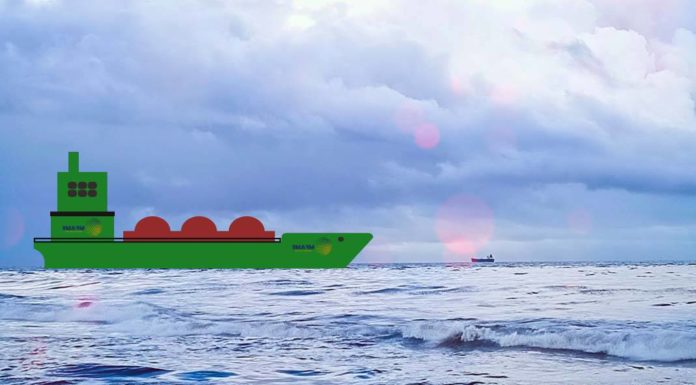Is the pioneering spirit in the shipping industry seems dying? Questions Malcolm Latarche in his article for Ship Insight.
Here’s an excerpt from that article.
Industry is regulation driven
The views expressed by speakers and audience during last week’s ShipInsight Conference showed that the pioneering spirit seems to be dying in the shipping industry.
Yes. When it comes to new ideas and equipment, shipowners and operators are reluctant to do anything that is not driven by regulation.
Whether that is true or not does perhaps depend upon how the driving factors for innovation are regarded.
Regulation regarding changes in vessel
Regulation requires shipowner to make changes to or add equipment to their vessel.
Recently, with ballast water treatment systems some owners were prepared to go further than others.
Type approval requirements
Both the IMO and the US Coast Guard type approval procedures require a series of land-based tests followed by in service testing on board a ship.
Just an economic factor?
Without few shipowners who acted as samples for in service testing, no system could have gained type approval.
Of course a cynic might say that this was just the economic factor coming into play with the owners concerned getting a free system as a reward for playing a part in the testing process.
BWTS
Ballast water treatment is one of those aspects of regulation. This has no benefit for the ship operator concerned but of course the vessel will meet the rules and therefore will be permitted to continue trading.
There have been several others in the first two decades of the 21st century – VDR, BNWAS, double-hull tankers and LRIT are just some but there are many more.
ECDIS
With others such as ECDIS and AIS, the regulatory argument is less obvious.
Both were seen as useful navigation tools and some owners were quite happy to install them even before the regulations making them mandatory were formulated.
Ships exempted from ECDIS
In ShipInsight conference, it was pointed that many ship types were exempted from the requirement to install ECDIS. Still, many of those ships do have them on board. The same is probably true of AIS.
Economic drivers for innovation
The economic drivers for innovation have always been there.
Mechanised propulsion
Mechanised propulsion was introduced over two centuries ago as a means of improving the performance of sailing vessels.
The modern revival of sail – also presented at the conference – is driven by both economics and regulation.
Although economics must be the main factor otherwise it would not be a few pioneers but every shipowner going down that path.
Specialisation of ships
There were innovation in the specialisation of ships with a change from the general cargo ship of old into bulkers, containerships, pallet carriers, ro-ro vessels and more.
Some of the innovations such as LASH lighter carriers and BACAT barge aboard catamarans may have fallen by the wayside but there were owners willing to give the ideas a go.
Steam giving way to motor
To date every advance in propulsion has been driven by economics with regulation playing just a small role.
We have seen steam give way to motor because of both efficiency and manpower reasons.
Four-stroke engines
Then we have seen first a dominance of four-stroke engines then the rise of the two-stroke, fuels have changed from distillates to residuals for economic reasons.
Turbochargers
We have seen fantastic performance improvements due to turbochargers being added to engines and electronic engine control and so much more.
Air pollution has been reduced in the 50 years
Almost all of those changes predated any regulation of exhaust gases from ships and it could be argued that as their development was purely driven by market factors, the reduction is fuel use and subsequent air pollution has been reduced in the 50 years between 1958 and 2008 (the benchmark for the latest regulatory round of reductions) by factors that make the latest ambitions in percentage terms seem almost negligible.
Available subsidies
In some instances there have been subsidies available to help shipowners take advantage of new ideas.
We can see this from some of the developments made mainstream by the Norwegian NOx fund financing all or part of pilot projects and more recently with the conversions to LNG facilitated by grants from Germany.
Use of batteries onboard
We can even say that the use of batteries onboard vessels is not a requirement but a choice.
Norway’s requirements for emission free vessels has come about because a few pioneering shipowners were prepared to try batteries and to prove the concept. It was only with their involvement the idea have flourished.
Pioneering spirit is still alive
Shipowners are under no obligation to become pioneers and the fact that some do offer up ships as experimental platforms would suggest that the pioneering spirit is still alive.
Fuel cells, air lubrication, carbon-free fuels and more may become mainstream one day and if they do it will be the foresight of the owners that are trialling them now that should be credited and recognised.
Did you subscribe to our daily newsletter?
It’s Free! Click here to Subscribe!
Source: ShipInsight















